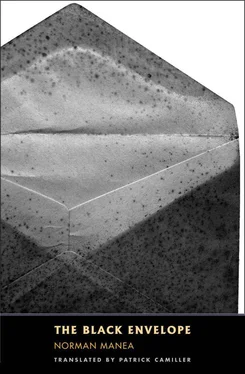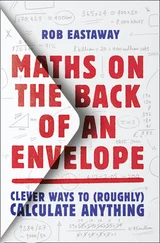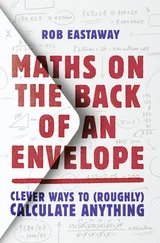“No. I don’t want you to misunderstand me. There are plenty around who could love you people. Dida Voinov, a pure Russian, went in for a pretty fortunate misalliance, let’s admit it. Even your friends, I accept, are choice people. No, I don’t dispute their choice qualities.” The painted lips made up a smile, oh, yes. “Even my friend Tori — I can’t deny her qualities. Nor her defects, the poor thing, of course not her defects. But we should be clear about the mistreatment of the old woman and the cats. The wrecked apartment, police apathy, the fire — you know what they’ve written in the papers. A pyre, no less, a pogrom. That old woman wasn’t all that old, as you can see. I live on the outskirts, on the other side of Bucharest. On the edge of Dude  ti, where the synagogue poor once used to live. There’s no trace left of the old picturesque parts, I can assure you. The old wanderers have vanished into thin air. Nowadays the area is made up of identical blocs and identical residents. I’ve landed there without wanting to, you understand. First they nationalized my villa and allowed me to stay on in just one room; the rest they offered to model parvenus of the model society. But in the end they pulled down the villa itself. They want identical blocks everywhere, model stables for the model herd. They rehoused me in Dude
ti, where the synagogue poor once used to live. There’s no trace left of the old picturesque parts, I can assure you. The old wanderers have vanished into thin air. Nowadays the area is made up of identical blocs and identical residents. I’ve landed there without wanting to, you understand. First they nationalized my villa and allowed me to stay on in just one room; the rest they offered to model parvenus of the model society. But in the end they pulled down the villa itself. They want identical blocks everywhere, model stables for the model herd. They rehoused me in Dude  ti. And there — I can’t help it — I began to attract attention, without wanting to. They felt I was different. They took me for a foreigner, they considered me a foreigner. It isn’t what you are that matters but how you’re seen. They shouted Theresienstadt after me, I was told. That’s what they shouted: Theresienstadt!” Mr. Vancea looked straight in the woman’s eyes, and she looked straight in the detective’s eyes.
ti. And there — I can’t help it — I began to attract attention, without wanting to. They felt I was different. They took me for a foreigner, they considered me a foreigner. It isn’t what you are that matters but how you’re seen. They shouted Theresienstadt after me, I was told. That’s what they shouted: Theresienstadt!” Mr. Vancea looked straight in the woman’s eyes, and she looked straight in the detective’s eyes.
“Yes, yes, I understand,” the youngster tried to stutter.
“So, that pogrom is a mix-up, Professor. But I’m not complaining. On the contrary, I’m proud, you know.”
“Yes, yes, I understand,” the indifferent who was not indifferent enough had tried to stammer out.
“Proud and happy. In the end the barbarians haven’t been able to make us all the same, as they wanted. They haven’t managed to sweep away the differences, as they promised. You understand, I think. I assume you understand. I don’t complain about what’s happened. What’s happened proves something important and durable. They haven’t been able to make us all the same! No, Professor, really they haven’t. The proof was brutal and unfortunate, I grant you that. But it was still proof, you have to admit.”
Mrs. Venera had been reborn, he had to admit. Her eyes were youthful again, like her movements and her appearance. A true rebirth, no less. The poor woman had been on the brink of an attack, but she had recovered immediately, the dear thing: the performance had not finished, Holy Saturday was not over yet.
“What I’m saying is that you understand. You’ve been making all kinds of allusions. Your trial, your removal from teaching, the distrust, the marginalization. Frame-up or not, a mix-up as in my case or not at all a mix-up. Well, it’s not what interests me. The main thing is that they didn’t want you to be what you are, or to discover what you are, or to understand what you are. Or to assert what you are, not to mention that — Their humanism! Leveling. That’s all it is. Demagogy and equality. Some more equal than others, as we know. Well, no, we are different, my sweet, and that’s how we’ll remain. But the crazy guys mistook me for an alien. For an alien! Those heated, nervy types wanted to burn me as a foreigner. Do you understand, my sweet?”
She pursed her lips in a kiss as she said the word “sweet,” and her eyes were big and on fire, triumphant, ready for who knows what fresh and incontrovertible proofs. The detective cowered over the chair, over the bag he was holding in his arms.
“You see what I mean, Mr. Vancea, frail Tavi, sick, cunning, devious Tavi.”
The dog Tavi was motionless, sunk in a patrician slumber, but the new Venera Tereza did not become calmer, not at all. A new offensive seemed quite imminent. Her voice weakened, however, and became a sighing whisper.
“Since my apartment was wrecked, since that horror, that pogrom, I’ve been staying here more, with Tavi.”
Tavi did not start, although his mistress held out her hand to stroke him. A pointless gesture, as Tavi was sleeping right over by the window, but Tereza had probably wanted to get her breath back.
“There will be a need for heroes, you said. Substitute heroes, you said. One day, when the lid is taken off the cauldron in which we have all been boiling, the stench will be unbearable. Worms and pus and mold will break in from all sides. Everyone will hide from himself and from others. New masks, new substitutes, new heroes. Only we won’t be the heroes. Not us poor wretches, or our wretched neighbors. New heroes will be invented. Mr. Cu  a, let us say! A perfect substitute, believe me. The photographer of our rusty, leaky, stinking cauldron, but also of the ghosts you keep chasing after, my sweet. Let’s not forget it; let’s not forget this halo. Forgive me, you’re an adolescent in crisis, intelligent and sensitive; I don’t wish to upset you. Come and let me show you his work. So you can see what the duffer has been hatching up. My batty turtledove, my vile cur, my deserter. Come, let me show you the epic. Homer, as you’ll see, Homer.”
a, let us say! A perfect substitute, believe me. The photographer of our rusty, leaky, stinking cauldron, but also of the ghosts you keep chasing after, my sweet. Let’s not forget it; let’s not forget this halo. Forgive me, you’re an adolescent in crisis, intelligent and sensitive; I don’t wish to upset you. Come and let me show you his work. So you can see what the duffer has been hatching up. My batty turtledove, my vile cur, my deserter. Come, let me show you the epic. Homer, as you’ll see, Homer.”
The extraordinary heat of her voice simply muddled your brains. The detective had advanced cautiously through the vestibule to the end. Tereza had opened the door on the right.
“This is Tavi’s study.”
Shelves up to the ceiling filled with thick files in every color.
“Come in, come in, Mr. Vancea. While away a few hours with the prints of this substitute. The werewolf! You will see truth’s memory and surprises. The very depths, that’s what you’ll see. Homer without words. Come in: it’s worth it, believe me.”
He had been alone with the treasure for several hours. At five the hostess brought him tea and a few slices of bread smeared with a suspicious-looking plum jam. The door had remained ajar. At some point he could hear a bizarre stammering. He pricked up his ears. The whispers started up again, hard to make out. A muffled sound like a spell.
He went out of the room, tiptoed through the vestibule, crouched forward. The door to the dining room was ajar: the words were being spoken again, and he gradually began to understand them.
“Free? Freer? Are we freer? Freer than we imagine? Freer than we think, you fool? Freer than we think. Answer, you cur, answer, my sweet.”
She spoke slowly, stopping after each word. A kind of splashing of the tongue could also be heard, a sipping or splashing. Tolea nervously moved forward another quarter of a step. A strip of mirror could now be seen through the crack in the door. Venera’s red lips pursed on the streak of a glass.
“Tell me: come on, you vile tyke. Does it seem so to us? Does it seem that they know everything? Yes, we’ve been trained to think they know everything. Trained not to move, because it’s impossible. Tell me, tell me, you know everything, my little Tavi-wavi.”
She took another sip: the glass disappeared. Now her plump hand was stroking his left cheek, up and down. Her head was bent low over the table, and the whispering became faster and more animated.
“Like hell you know, you brainless dolt! Like hell. You don’t know a thing. Neither you nor your wife. The immaculate one! The victim! Just an alibi. Tavi with his immaculate alibi. Little doggie Tavi, yes, yes. The future. My future dog-face. Little Tavi. Scared of present, past, and future. The monster. Trained. So we’re not able to because—”
Читать дальше

 ti, where the synagogue poor once used to live. There’s no trace left of the old picturesque parts, I can assure you. The old wanderers have vanished into thin air. Nowadays the area is made up of identical blocs and identical residents. I’ve landed there without wanting to, you understand. First they nationalized my villa and allowed me to stay on in just one room; the rest they offered to model parvenus of the model society. But in the end they pulled down the villa itself. They want identical blocks everywhere, model stables for the model herd. They rehoused me in Dude
ti, where the synagogue poor once used to live. There’s no trace left of the old picturesque parts, I can assure you. The old wanderers have vanished into thin air. Nowadays the area is made up of identical blocs and identical residents. I’ve landed there without wanting to, you understand. First they nationalized my villa and allowed me to stay on in just one room; the rest they offered to model parvenus of the model society. But in the end they pulled down the villa itself. They want identical blocks everywhere, model stables for the model herd. They rehoused me in Dude 










